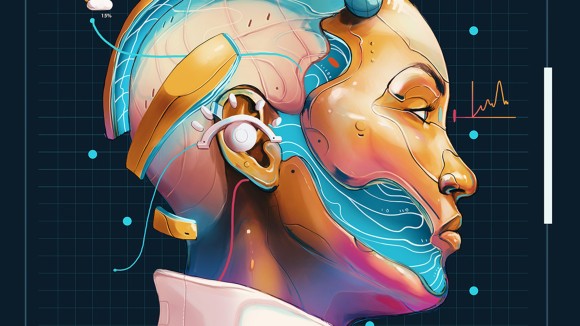In the era of rapid technological advancements, artificial intelligence (AI) has become an integral part of our daily lives, permeating various aspects of society. From voice assistants and personalized recommendations to automated decision-making systems, AI algorithms wield tremendous influence over our choices and experiences. While AI has brought undeniable benefits, it is imperative to explore the less-discussed side: how we are all victims of AI in different ways. In this article, we will delve into the hidden impact of AI on individuals and society at large.
Privacy Erosion:
The relentless pursuit of data by AI algorithms has led to a pervasive erosion of privacy. Our personal information, online behaviors, and preferences are continually collected and analyzed, often without our explicit consent. This trove of data becomes a valuable commodity for targeted advertising, surveillance, and even potentially harmful uses. We unwittingly become victims of AI when our privacy is compromised, leaving us exposed to intrusive marketing tactics, data breaches, or the risk of identity theft.
Algorithmic Bias:
AI systems are created by humans and, as a result, can inherit the biases and prejudices that exist in society. When algorithms are used in critical domains like hiring, lending, and criminal justice, biased decision-making can occur. This leads to the victimization of individuals based on their race, gender, or other protected characteristics. Those affected become AI victims, as they face systemic discrimination perpetuated by seemingly impartial algorithms.
Manipulative Influence:
Social media platforms and online advertising leverage AI algorithms to exert manipulative influence over users. By exploiting psychological vulnerabilities, these algorithms curate personalized content to maximize engagement and addiction. As a result, we fall victim to filter bubbles, echo chambers, and persuasive techniques that shape our thoughts, opinions, and behaviors. Our autonomy is undermined, and critical thinking takes a backseat as AI algorithms subtly guide our choices.
Deepfakes and Misinformation:
The rise of AI-powered deepfake technology has ushered in an era of manipulated media, posing a significant threat to truth and trust. Deepfakes, which are realistic yet fabricated audiovisual content, can deceive individuals, spread misinformation, and even incite social unrest. When we encounter deepfakes or false narratives designed to mislead or harm, we become victims of AI’s ability to distort reality and undermine our ability to discern truth from fiction.
Employment Disruption:
AI-driven automation is rapidly transforming industries, leading to job displacement and economic uncertainty. As AI systems replace human labor in various sectors, individuals find themselves victims of unemployment, underemployment, or job insecurity. The societal impact is profound, as entire communities struggle to adapt to the changing landscape of work. The promise of AI’s efficiency and productivity comes at the cost of human livelihoods, leaving many feeling victimized by the very technology that was meant to enhance our lives.
Ethical Dilemmas:
AI presents complex ethical dilemmas that affect us all. From autonomous vehicles making life-or-death decisions to AI-powered surveillance infringing upon civil liberties, we are collectively confronted with challenging moral choices. The lack of transparency, accountability, and regulatory frameworks surrounding AI exacerbates the victimization of individuals and society, leaving us grappling with the consequences of technology that outpaces ethical considerations.

Conclusion:
In our increasingly AI-driven world, we must confront the uncomfortable reality that we are all AI victims in various ways. Privacy erosion, algorithmic bias, manipulative influence, deepfakes, employment disruption, and ethical dilemmas are among the many facets of AI victimization that affect individuals and society at large. Acknowledging these issues is the first step toward creating a future where AI serves us ethically, responsibly, and in a manner that empowers individuals rather than victimizing them. It is crucial to prioritize robust data protection, fair and accountable algorithms, media literacy, and policies that mitigate the negative impacts of AI. By doing so, we can harness the transformative potential of AI while safeguarding the well-being and dignity of every individual.


Leave a Reply